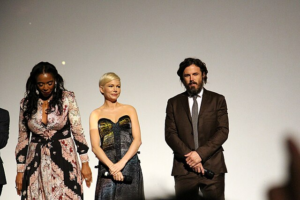Apple has always liked quiet conviction over loud rivalry, and Eddy Cue’s most recent comments about the future of Apple TV+ made that obvious once again. Cue, who is in charge of Apple’s services group, talked about the mounting rumours that the company might add an ad-supported subscription tier, like Netflix, Disney+, and Amazon Prime Video have done. He also talked about the idea that Apple might one day buy a big Hollywood studio to quickly grow its library of content. His answers, which were given in a calm, almost typical Apple tone, demonstrated how devoted the business is to its long-term strategy, even though the streaming market is getting more competitive every year.
For months, analysts and those who work at Apple have said that the company has to modify its strategy. It was only a matter of time until Apple followed suit with lower-priced ad options since every major streaming service had already done so. But when Screen International asked Cue about this in an interview, he didn’t hesitate. “Nothing right now.” He added, “I don’t want to say no forever, but there are no plans.” There was no attempt to make the answer softer or suggest a secret route. Instead, Cue just confirmed what Apple has thought since Apple TV+ came out: that the service’s value comes from a smooth, uninterrupted watching experience. He thinks it’s simpler to keep this quality when prices are fair and customers don’t feel overwhelmed by ad breaks.
Apple hasn’t completely steered away from advertising, which is interesting. The corporation already runs commercials throughout its live sports shows, like Major League Soccer and the Formula 1 coverage that will start soon. Cue doesn’t think this is a contradiction because live sports have always been different from scripted entertainment. People who watch football games expect there to be ad breaks in the middle of the game. But putting the same breaks into an Apple Original movie or show would change the mood that Apple has been trying to create. Cue said that if Apple can keep Apple TV+ at a competitive price, “it’s better for consumers not to get interrupted with ads.” That one sentence sums up the emotional core of Apple’s plan: build a place where stories may be told without noise.
There is another discourse going on in Hollywood and Silicon Valley that is gaining steam along with the one about advertising. Many people who observe the industry think that Apple’s smaller library makes it less competitive than platforms that have spent decades building up their collections of thousands of games. People are always wondering if the corporation might buy a big content company like Warner Bros. Discovery, A24, or perhaps Disney. Every rumour comes with a theatrical flourish, usually saying that one big purchase might make Apple TV+ the most popular service in the world overnight. But Cue turned down this proposal in the same calm way he turned down the ad-tier conjecture.

He said, “It’s the same answer as before, but you need to look at Apple from a historical point of view.” Apple has never been the kind of corporation that gets bigger by buying up big companies. “We don’t buy a lot of big companies. We usually just buy very minor things that have nothing to do with Apple TV, so I don’t think that will happen since we like what we’re doing. We are growing on what we have and will keep doing so. His statements show a calm pride, the kind that comes from trusting in slow, steady progress instead than big changes. Apple’s biggest purchase ever was Beats for $3 billion in 2014. That deal was more about combining audio technologies and rethinking music services than about content libraries.
From an industry point of view, this way of doing things makes Apple stand apart. To get bigger and faster, most streaming services have bought companies that have a lot of material. MGM was bought by Amazon. Disney and Fox came together. Warner Bros. and Discovery are now one company. It’s evident that scale is seen as a way to survive. But Apple has always liked depth over breadth. Apple TV+ has concentrated on original, selected tales made in close partnership with creators instead of building its repertoire with thousands of titles. This plan might not offer it the biggest library, but it has helped the platform get a good name for quality and for being willing to take new chances.
Apple’s success in entertainment is also quite personal in certain ways. It seems that Cue’s comments are based on the same concept that has led the company in hardware, software, and services for decades. Apple doesn’t often hurry. It doesn’t often panic. It doesn’t change who it is to follow trends. Instead, it watches the market closely, learns discreetly, and only commits to concepts that it thinks will last for years. I’ve seen the firm grow from iTunes to Apple Music and then to Apple TV+. I can see this pattern: Apple likes to take its time. It creates an ecology that feels stable, not one that is put together with opportunistic purchases.
Of course, there are problems with this method. Apple TV+ has to compete with services that offer thousands of hours of old films and TV shows. People occasionally want to watch series they know and love or huge franchises, but Apple’s library doesn’t always have those. On the other side, the service has made hits that critics love and has earned recognition for giving creators the flexibility to make art instead of following rules set by algorithms. A lot of users say they like that Apple TV+ keeps things simple and focusses on quality.
Cue’s statements show that he or she knows both the pros and cons of Apple’s course. He didn’t say that adjustments wouldn’t happen in the future. His words “I don’t want to say no forever” leave the door open for change. Apple has always changed when it felt appropriate. The company that used to say no to bigger iPhones eventually built them, and the firm that used to keep headphone jacks eventually took them away. Apple only makes these changes when it thinks they will help the company in the long run, not just provide it a short-term edge over its competitors.
For now, Apple TV+ is still a unique place in the streaming world: there are no ads, the content is carefully curated, and Apple isn’t trying to get huge libraries just to stay up with the competition. Only time will tell if this way of doing things will be a long-term benefit or a future problem. But Cue’s confidence shows that Apple is okay with being itself, even in a market that values speed and scale. It reminds us that in a time of constant competition, the best strategy is sometimes the one that grows slowly, methodically, and on its own terms.








